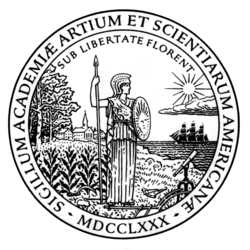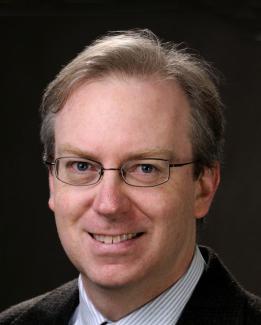News

Researchers upend theory about the formation of the Milky Way Galaxy
New findings by Robyn Sanderson and collaborators suggest galaxy’s last major collision was billions of years later than previously thought.

Physics for Architects in Active-Learning Format by Bill Ashmanskas
The pandemic motivated me to convert Physics for Architects into SAIL (Structured, Active, In-Class Learning) format. Our classroom now buzzes with activity, making physics as engaging for the 50 students as it is for me.
PHYS 0008 is a sector course tailored to visual learners, many eager to excel in a later Architectural Structures course. Most students have seldom used math since high-school calculus or physics.

Oxford University selects Vijay Balasubramanian as the George Eastman Professor for the 2024-2025 academic year
The Eastman Professorship was established in 1929 by George Eastman, founder of the Eastman Kodak Company. Eastman created a chair at Oxford University to be filled on a visiting basis by senior American Scholars of the highest distinction. Each appointment is made for one year. The fund which supports the Eastman Professorship is administered by the Board of Directors of the AARS through the American Trust For Oxford University.

American Academy of Arts and Sciences recently elected Charlie Kane as a new member
Founded in 1780, the American Academy of Arts and Sciences honors excellence and convenes leaders from every field of human endeavor to examine new ideas, address issues of importance to the nation and the world, and work together “to cultivate every art and science which may tend to advance the interest, honor, dignity, and happiness of a free, independent, and virtuous people.”

Gary Bernstein receives Lindback Award for Distinguished Teaching
The Lindback Awards for Distinguished Teaching at the University of Pennsylvania were established in 1961 with the help of the Christian R. and Mary F. Lindback Foundation. Christian Lindback was President and principal owner of Abbotts Dairies Inc. and a Trustee of Bucknell University. The Foundation established Lindback Awards for Distinguished Teaching at colleges and universities throughout Abbotts Dairies Inc.’s service area in New Jersey, Pennsylvania, Maryland, Delaware, and Virginia.

Charlie Kane Recipient of Ira H. Abrams Memorial Award for Distinguished Teaching
The Ira H. Abrams Memorial Award for Distinguished Teaching for Faculty in the School of Arts and Sciences seeks to recognize teaching that is intellectually rigorous and exceptionally coherent and that leads to an informed understanding of a discipline. Recipients of the Ira Abrams Memorial Award are expected to embody high standards of integrity and fairness, to have a strong commitment to learning, and to be open to new ideas. As the School of Arts and Sciences' highest teaching honor, the Abrams Award recognizes faculty who have sustained records of teaching excellence.

Sam Dillavou receives GSNP Annual Postdoctoral Speaker Award
The annual Postdoctoral Speaker Award sponsored by the American Physical Society’s Topical Group on Statistical and Nonlinear Physics (GSNP) was won by Sam Dillavou, for his talk on “The Ensemble Peels the Onion: Emergent Learning Via Sequential Error Mode Reduction.” Sam’s work is part of IRG-1 on Learning Metamaterials, in the lab of Doug Durian in collaboration with Andrea Liu and Mark Miskin. Read more here.

Provost’s Award for Distinguished PhD Teaching and Mentoring awarded to Arjun Yodh
The Provost’s Award for Distinguished Ph.D. Teaching and Mentoring was established in 2004 specifically to honor faculty who mentor Ph.D. students. This prize is intended to underscore the University’s strategic emphasis on graduate education.

What to know: 2024 total solar eclipse
Gary Bernstein and Bhuvnesh Jain speak with Penn Today about the significance of the coming total eclipse.
On April 8, large swathes of the United States will temporarily experience day turning into night as the moon passes in front of the sun with its shadow causing a total solar eclipse. The shadow will enter from Texas, travel through Oklahoma, Arkansas, Missouri, Illinois, Indiana, Ohio, Pennsylvania, New York, Vermont, and New Hampshire, finally exiting via Maine. Read full article here.
